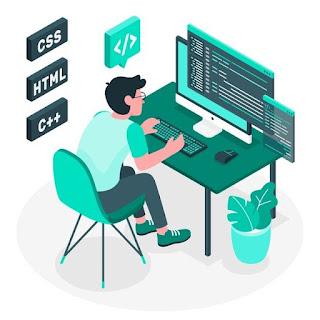Choosing the Right Software Course: A Guide to Landing Your Dream Job
Introduction:
In today's
fast-paced digital world, the demand for skilled professionals in the software
industry is skyrocketing. As a result, students often find themselves
overwhelmed when deciding which software course to pursue. This blog aims to
alleviate the confusion by providing guidance on selecting the most suitable
software courses based on the job market and industry sectors. So, let's dive
in and explore the best software courses for various career paths!
1.
Web Development: Web development has become an essential skill across multiple
industries. If you aspire to build visually appealing and functional websites,
consider courses in HTML, CSS, JavaScript, and front-end frameworks like React
or Angular. Back-end development courses in languages like Python, Ruby, or
Node.js, along with database management, will equip you with a comprehensive
skill set.
Ideal for:
Web developers, full-stack developers, UI/UX designers, e-commerce specialists.
2.
Mobile App Development: With the widespread use of smartphones, mobile app
development is a lucrative field. Focus on learning languages such as Swift for
iOS development and Java or Kotlin for Android. Cross-platform development
frameworks like React Native or Flutter are also worth exploring.
Ideal for:
Mobile app developers, UI/UX designers, product managers.
3.
Data Science and Analytics: Data is the new oil, and companies rely on data scientists
and analysts to make informed decisions. Courses covering programming languages
like Python or R, along with statistical analysis, machine learning, and data
visualization techniques, will set you on the path to becoming a data expert.
Ideal for:
Data scientists, data analysts, business analysts, researchers.
4.
Cybersecurity: As cyber threats continue to evolve, the need for cybersecurity
professionals has never been greater. Pursue courses in network security,
ethical hacking, cryptography, and security management to understand the
intricacies of safeguarding digital systems.
Ideal for:
Cybersecurity specialists, ethical hackers, information security analysts.
5.
Artificial Intelligence and Machine Learning: Artificial Intelligence (AI) and
Machine Learning (ML) are transforming industries across the globe. To enter
this exciting field, focus on courses covering algorithms, statistical
modeling, neural networks, and programming languages such as Python or TensorFlow.
Ideal for:
AI/ML engineers, data scientists, research scientists.
6.
Software Engineering: Software engineering forms the backbone of the software
industry. Courses in programming languages like Java, C++, or C#, along with
software development methodologies, version control systems, and software
testing, will equip you with the skills needed to develop robust and scalable
software applications.
Ideal for:
Software engineers, software developers, project managers.
7.
Cloud Computing: Cloud technology has revolutionized the way businesses operate. Courses
in cloud platforms like Amazon Web Services (AWS), Microsoft Azure, or Google
Cloud Platform (GCP), along with knowledge of serverless architecture and
containerization, will prepare you for a career in cloud computing.
Ideal for:
Cloud architects, cloud engineers, DevOps professionals.
Conclusion: Selecting the right software course
is crucial for securing a rewarding career in the ever-expanding technology
landscape. By understanding the demands of various job sectors and aligning
your interests and skills, you can make an informed decision. Remember,
continuous learning and staying updated with emerging technologies are vital to
thrive in the software industry. Good luck on your journey to success!



Comments
Post a Comment